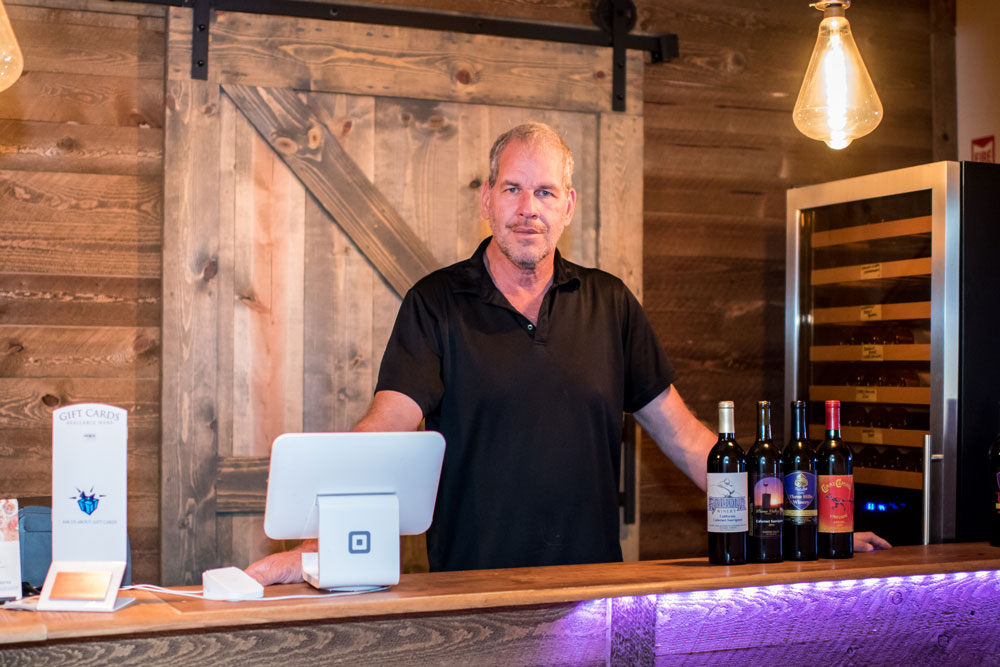With the rise of websites and apps such as Yelp, Urbanspoon and Dine.com, anyone can be a food critic these days. For pizzeria and restaurant operators, these crowdsourced online reviews can be a mixed blessing—most reviews are fairly positive, but all it takes is one or two negative ones to send some restaurateurs into a tailspin, especially if they see the reviews as unfair. Controversy has raged around these sites since they first arose to prominence, and restaurateurs are often the first to complain. But love them or hate them, these apps won’t be going away anytime soon, and operators must learn to live with them—and, whenever possible, capitalize on them.
Despite restaurateurs’ misgivings, some studies indicate that crowdsourced reviews can be a positive force. In a 2012 report, economists at the University of California Berkeley analyzed Yelp restaurant ratings and found that, on a scale of 1 to 5, a half-star rating increase translates into a 19% greater likelihood that a restaurant’s seats will be full during peak dining times. Moreover, the study found that this increase in business was not tied to changes in price or the quality of food or service.
With this in mind, PMQ conducted an interview via email with Morgan Remmers, manager of local business outreach at San Francisco-based Yelp. Through informational sessions across the country, Remmers addresses how business owners can best approach the ever-growing world of online reviews. She also hosts a series of webinars on subjects relevant to business owners and regularly contributes content to Yelp’s “Blog for Business Owners.”
PMQ: Tell us a little bit about the philosophy behind Yelp. What do you want pizzeria operators to know about Yelp as a company?
Remmers: Yelp is a website and mobile application that connects people with great local businesses. What sets Yelp apart from other review sites is our community of users, which is made up of engaged locals who connect online and off to share their opinions about local businesses. We had an average of 120 million monthly unique visitors in Q4 2013 and by the end of that quarter, Yelpers had written more than 53 million reviews on the site worldwide.
Yelp provides a huge benefit to small businesses, including pizzerias. A recent Boston Consulting Group study found that small businesses with a free Yelp business owner’s account saw an average of $8,000 in annual revenue from Yelp. With the business owner’s account, there are several free tools to further optimize a business’s listing, including the ability to upload photos, create exciting offers and describe what the business specializes in. Yelp provides a two-way platform for consumers to share their experiences and for businesses to respond to their customers via free response tools, also located in the business owner’s account.

PMQ: So how should a pizzeria operator respond to a negative review on Yelp?
Remmers: Nearly 80% of the 53 million reviews on Yelp are 3 stars or higher, but every business will likely receive negative feedback at some point because it’s impossible to please 100% of the people you deal with 100% of the time. When faced with a negative review, restaurant operators can respond using either of the two free response tools located inside their business owner’s account. They can send a private message or post a public comment to connect with consumers that have written reviews about their restaurant.
Sending a private message is much like sending someone a personal email and is visible only to the reviewer. This tool is a good first step to get more information from a customer about a less-than-positive experience.
Posting a public comment can be your greatest PR tool when used properly. While you still want to address the reviewer directly, a public comment posts right underneath the review that you’re responding to, for all consumers to see. This tool is most effective when you respond promptly, thank the reviewer for his feedback and state your policy or clarify any inaccuracies in the consumer’s review.
Regardless of whether you respond publicly or privately, remember to respond diplomatically and ask a levelheaded friend or coworker to read over your response before you hit the “send” button. Keep in mind that consumers are looking at the big picture about your business, so don’t focus or obsess on any single review.
PMQ: What about a positive review? How should the operator respond to that?
Remmers: Yelp users love hearing from business owners who acknowledge the positive review they have written! Sending a quick private message is a great way to thank patrons for writing a positive review, and posting a public comment in response to a few positive reviews is a nice way to demonstrate the great rapport you have with customers.
PMQ: What if a Yelp reviewer posts a comment about a restaurant that simply isn’t true? What are the operator’s options? Will Yelp remove the content?
Remmers: If you feel that the review in question violates Yelp’s terms of service, you can flag the review so our operations team can take a look. It’s important to point out that Yelp does not take sides in factual disputes, so your best bet is to use Yelp’s free response tools to address that review, stating the facts and your company policy.
PMQ: You said reviews that violate Yelp’s terms of service can be flagged and your operations team will take a look. If a review is found to violate your terms of service, how long will it take to get the comment removed? Is this a lengthy process?
Remmers: The process for flagging a review takes only a few minutes. Our user support team should respond to your
inquiry within three to five business days and let you know if they’ve decided to remove the review or leave it intact. Business owners should follow these steps:
1. Go to yelp.com/contact.
2. Select “Questionable Content” from the drop-down menu.
3. Identify your business.
4. Provide commentary as to why you would like the review to be evaluated.
PMQ: Should restaurant operators even solicit customer reviews on Yelp in the first place? Is this a good idea or bad idea?
Remmers: Although it may seem counterintuitive, we discourage businesses from directly asking for or soliciting reviews from their clients. Yelp has always been a community-driven review site and not a “drive-by” one, so we feel the most useful reviews are those that occur organically. Instead of asking for reviews, let customers know you’re on Yelp. Here are a few easy ways restaurant operators can bring awareness about their Yelp presence to their customers:
1. Place a badge and link to your Yelp listing on your website using Yelp’s review badges—we provide the code, and you just paste it into your website.
2. Put a “Find Us On Yelp” sign in your place of business, on the front counter or window. These signs have even been spotted on business-branded vehicles. You can find these sorts of images on our Flickr page.
3. Include a link to your Yelp business listing in your email signature with the words, “Check us out on Yelp!”
PMQ: What if an operator doesn’t want his restaurant reviewed on Yelp? Does he have any options?
Remmers: Consumers have the right to talk about what they like (and don’t like) about a meal they ate, a plumber they hired or a car wash they visited. We don’t remove business listings, so a business’ best bet is to engage with its fans and critics alike through the free tools Yelp provides.
PMQ: What about your “recommended reviews”? How does Yelp go about selecting them?
Remmers: Every day our automated software goes through the more than 53 million reviews that have been submitted to Yelp to select the most useful and reliable content. Unlike many other sites, our stance is quality over quantity when it comes to reviews. As a result, we only recommend about 75% of the reviews that are submitted. More often than not, these reviews come from active members of the Yelp community.
We try not to highlight reviews written by users we don’t know much about or reviews that may be biased because they were solicited from family, friends or favored customers. We also try to weed out reviews that may have been written or purchased by businesses to help themselves or hurt a competitor. And we try to avoid unhelpful rants and raves, too.
PMQ: How can Yelp determine if a review was solicited from family, friends or favored customers? I mean, assuming the reviewer doesn’t identify himself as such?
Remmers: Our recommendation software is extremely sophisticated and evaluates several objective data points with regard to the reviewer and the review they’ve posted on any given business listing. Again, there are a number of reasons why a review might not be recommended, including those that have been identified as fakes or are biased (like the ones we see originating from the same computer). But many are real reviews from real customers that we just don’t know much about and therefore can’t recommend.
PMQ: A while back, a pizzeria operator in Florida hugged President Obama, and the resulting backlash bled over into his pizzeria’s Yelp reviews. Many of the president’s critics reportedly gave the pizzeria one-star reviews on Yelp for political reasons, thus skewing the rating system. Can this sort of thing be prevented?
Remmers: Non-germane, media-fueled reviews typically violate our content guidelines, and, although they’re infrequent, Yelp has proven policies in place to deal with such events. Our user operations team will remove reviews determined to violate our terms of service and content guidelines, including reviews that only attack a business’s perceived political ideologies,employment practices, or other matters that don’t address the core of the consumer experience. This way, people can continue to find great local businesses—and a good slice—based on evaluations of first-hand consumer experiences, not political views.















